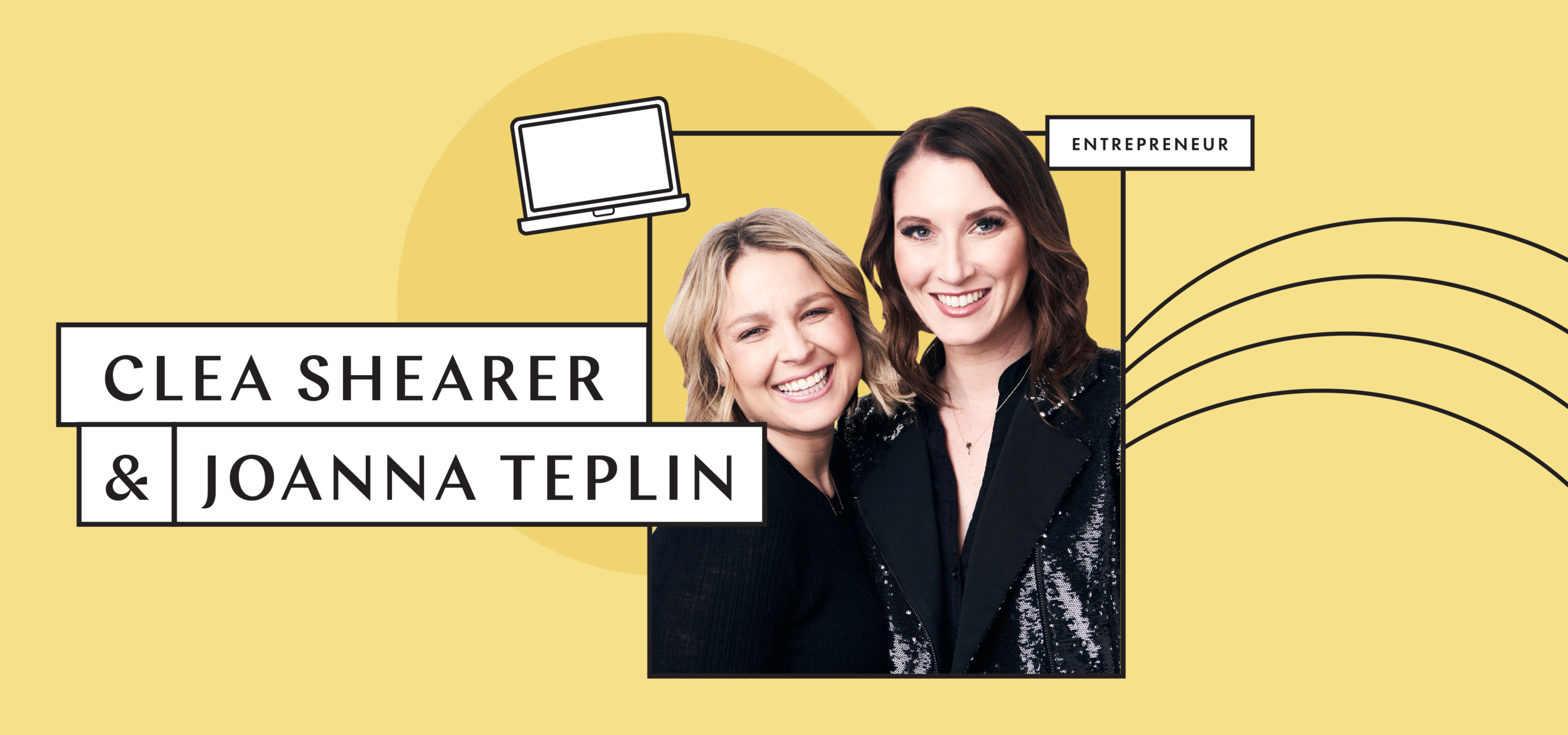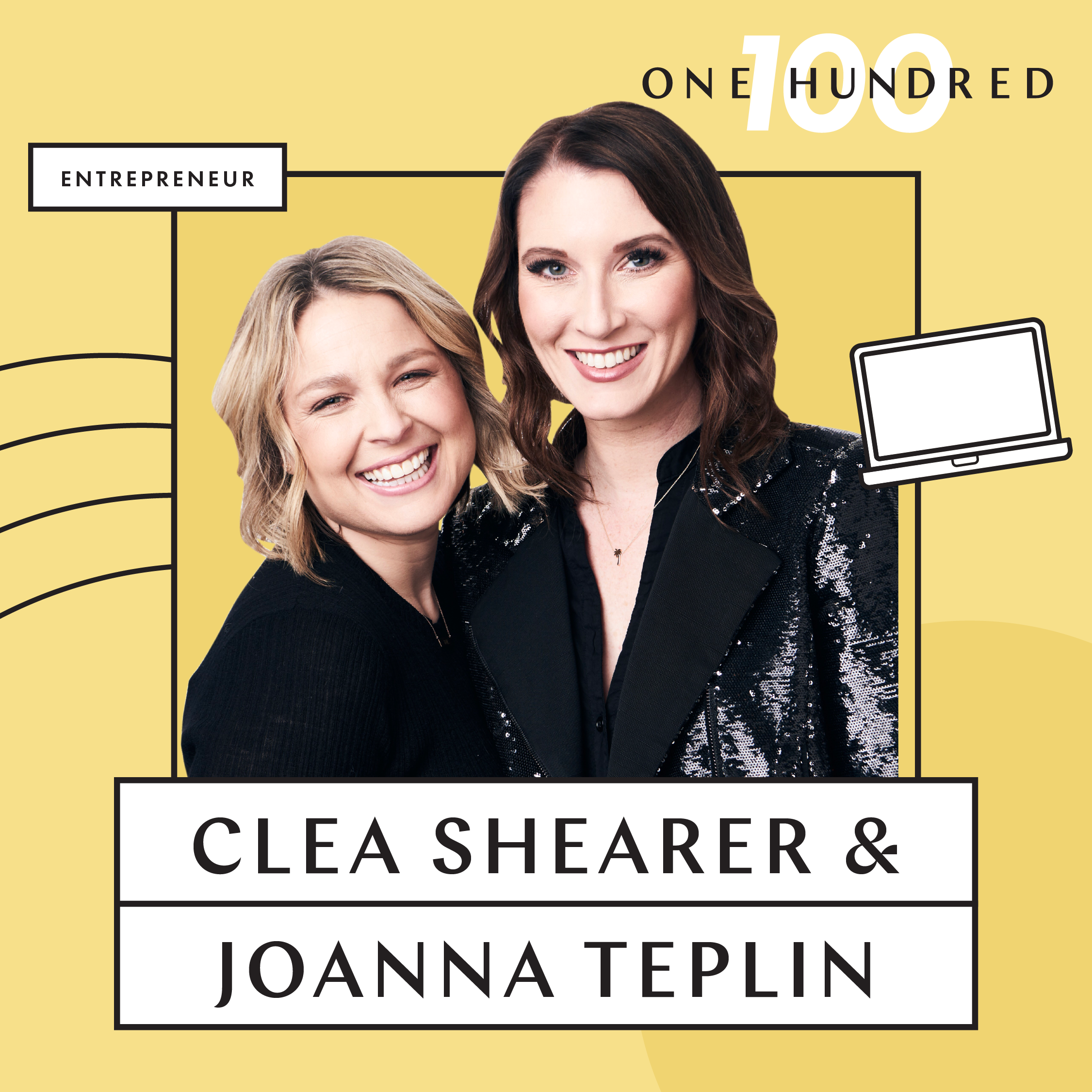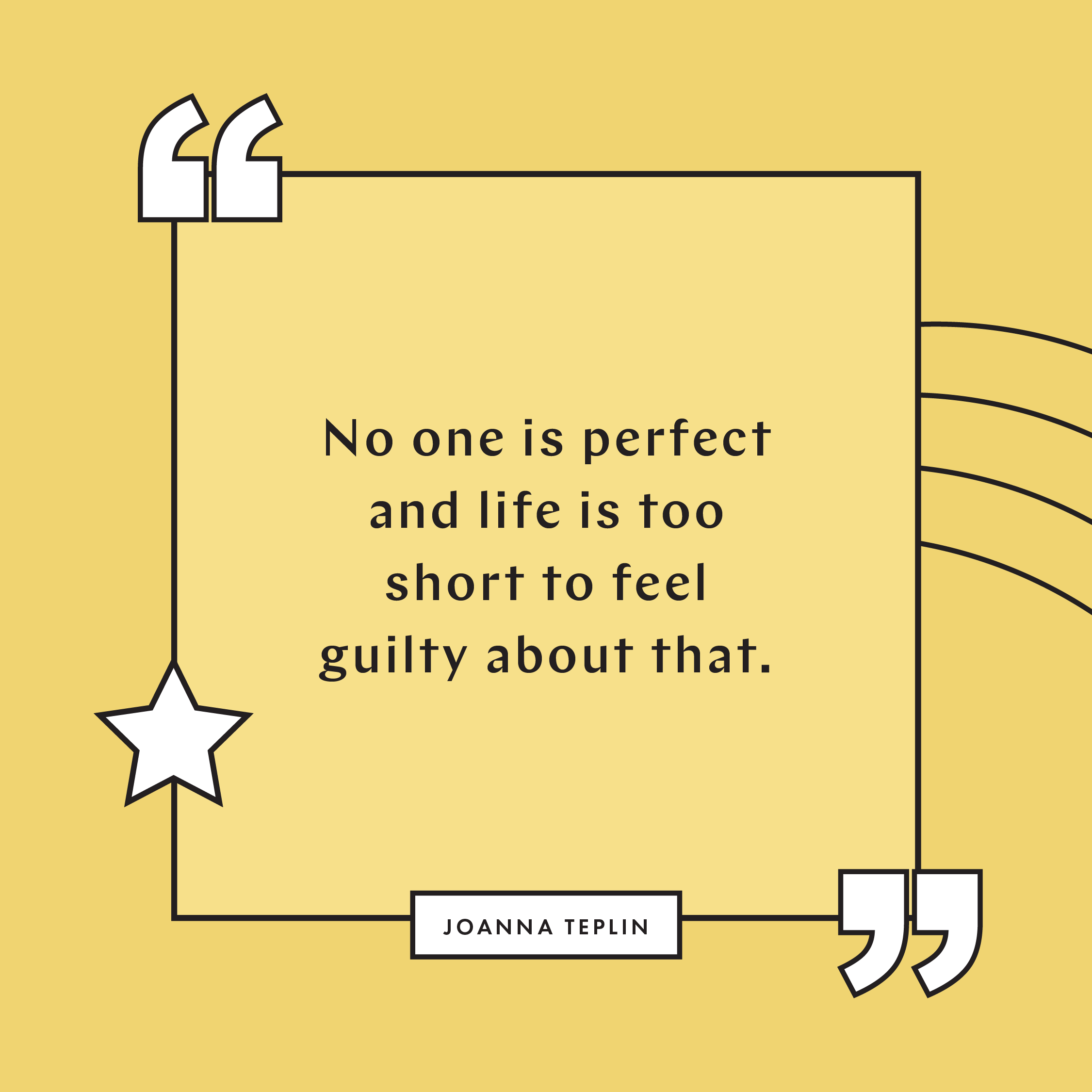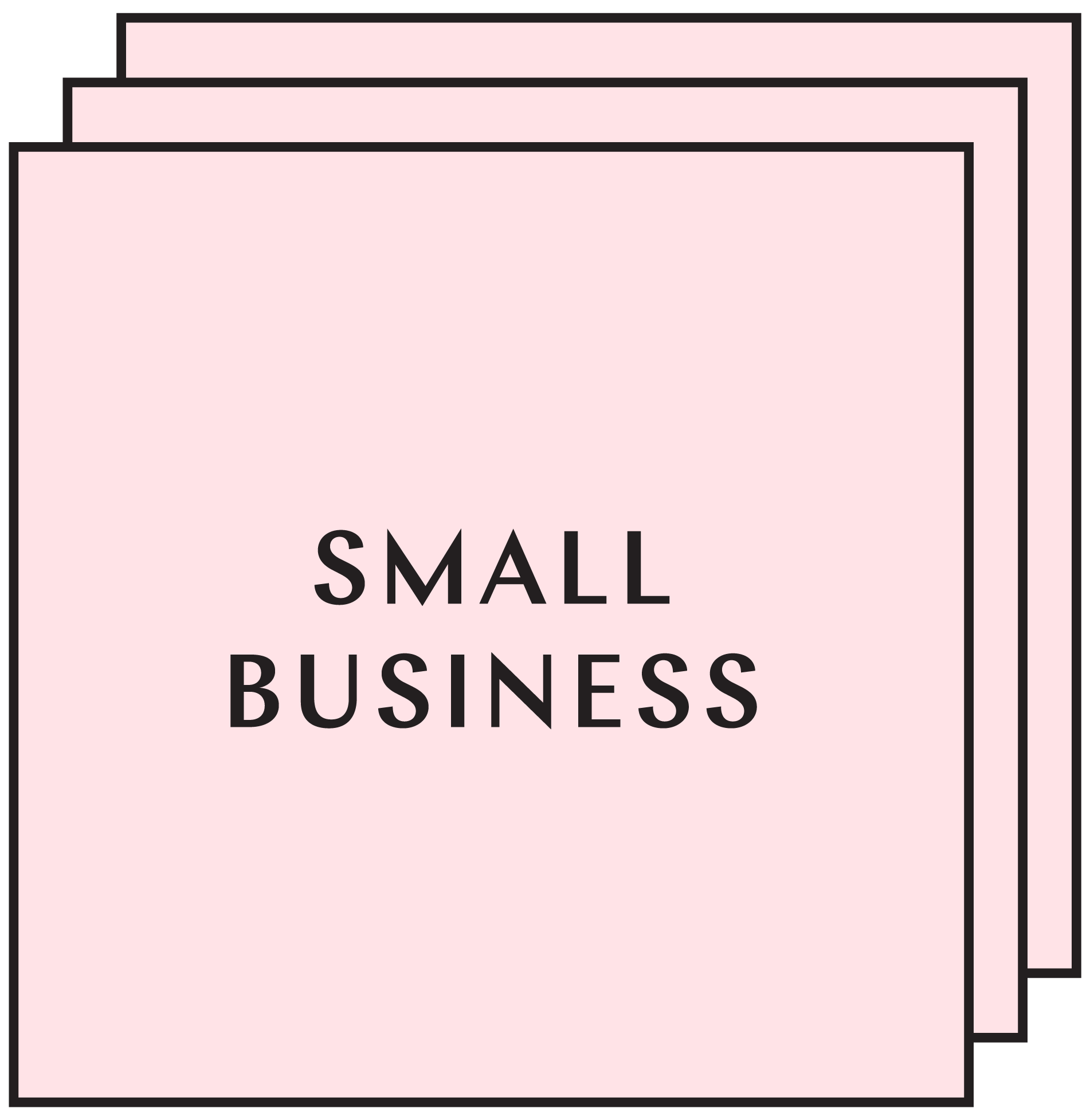Clea Shearer and Joanna Teplin decided to go into business together just four hours after meeting. True story. Though the move may sound like a risky one, it’s more than paid off for the design-minded organizational geniuses.
Shearer and Teplin’s sought-after home organization company, The Home Edit, has garnered a long list of celebrity clients by the likes of Mandy Moore, Busy Philipps, Kacey Musgraves, and Khloé Kardashian. Not to mention over 1.4 million followers on Instagram, a line of products at The Container Store, a New York Times bestselling book, and a forthcoming Netflix show produced by none other than Reese Witherspoon’s Hello Sunshine.
Here, Shearer and Teplin share their tips for navigating a business relationship with a close friend, their tried-and-true social media marketing strategy, and their preferred stress-relieving activity, which (hint!) requires a box of crayons.
CREATE & CULTIVATE: You two met and became instant friends and shortly after business partners—how have you developed a good working relationship? What tips can you give to other business partners trying to make it work?
CLEA SHEARER: We met, became friends, and decided to start a business together after just four hours. Are we crazy?! The answer is probably yes. But that’s what makes us such great business partners. We have this shared ability to trust our instincts and just do. To this day, you can still find us making huge life-altering business decisions over lunch. What’s even more strange is that Joanna and I are simultaneously the same people and complete opposites. It’s what allows us to spend so much time together without calling it quits. We rely on each other’s individual strengths to take the lead when needed, and to help balance out our independent weaknesses.
JOANNA TEPLIN: It’s true. As business partners, it’s SO important to be cognizant of each other’s strengths and weaknesses. It allows you to work more efficiently and divide and conquer without ego or frustration holding you back. We actually took the Enneagram Institute test together and it provided a lot of insight for us into the good (and bad) sides of our personalities. The more you know yourself, and your partner, the more successful you will be. Being different isn’t bad, it can actually bring more opportunity.
When you hit a bump or hurdle in your career, how do you #FindNewRoads + switch gears to find success?
JOANNA: It all goes back to trusting our instincts. If something didn’t turn out the way we planned, there’s usually a reason for that. We’re all for moving forward in a different direction and taking the knowledge we’ve learned from what didn’t work to help us find what will.
CLEA: What Joanna said. We’ve learned that analyzing things until we are blue in the face is just a waste of time and usually leads to one of us crying in a corner. We’re better off not getting stuck on a problem, even if it means risking a trial and error. You learn from those mistakes and bumps in the road, so we might as well embrace them.
““Setting the bar just low enough to accomplish all kinds of bite-size victories helps us stay motivated.—Clea Shearer”
Why do you think organization has become so popular? To what do you attribute your success?
JOANNA: I think people are realizing that organizing is about more than making a space pretty for pretty’s sake. Believe us when we say that if it were just about staging spaces for gorgeous photos, we would have been out of business a long time ago. One of the things we love most about having organized homes, and one of the things we often hear from our clients, is how calm they feel when everything’s put away. Organization can help save time, money, and ultimately, your sanity.
CLEA: When we first launched The Home Edit, we had a very clear objective: Transform the way people think about organization. We weren’t satisfied being just another couple of organizers who could sort things into bins and use a label maker. We wanted to showcase the magical sweet spot that exists where form meets function when spaces are efficient, user-friendly, and beautiful all at once. It not only makes sections of your home more enjoyable to look at, but it also inspires people to maintain it—and isn’t that the whole point?
Your Instagram account has over 1.4 million followers, how has social media changed or impacted the success and growth/awareness of your business? What is your social media strategy? What unique social marketing tips do you have for other entrepreneurs to help grow their company online?
CLEA: Instagram is the perfect tool to market our type of business. People love seeing photos of organized spaces because it elicits a sense of calm, which let’s be honest, is always nice. But even more importantly, the photos inspire them to do the same in their home and we can offer the tools to get them there.
Then, there’s our Instagram stories, where we share a more personal side. It gives us a unique opportunity to engage with our followers, and show them that just because our feed is perfectly curated doesn’t mean that our lives are. Joanna jokingly refers to it as “The Mullet Philosophy”, which means business in the front (organization on the feed) and party in the back (us and all of our issues in stories). I wouldn’t necessarily call it a strategy, it’s just what felt the most authentic to us. Not every follower of ours is interested in organization, some just come for the stories. Either way, it’s important to remember that when building a brand, both count.
JOANNA: Speaking of owning our strengths and weaknesses, I have absolutely no clue how to use social media. I am so thankful that Clea not only enjoys it but is really, really good at it. It’s a full-time job, people, and that’s truly what it takes.
Your business has grown significantly with a book and a TV show. What was your biggest challenge this year and what did you learn from it?
JOANNA: Expanding our business while also traveling non-stop proved to be a challenge. It takes a lot of effort to make sure that nothing falls through the cracks, especially when you don’t remember what time zone you are in. It was also hard dealing with the guilt of being away from my family and missing my kids and husband constantly. But I learned that in order to manage it all, I had to be patient with myself and set realistic expectations. It’s better to compartmentalize than to spread yourself too thin.
CLEA: Being pulled in a million different directions. This past year has taught me a lot about the importance of prioritizing and the power of saying no. There’s only so many hours in a day and setting clear boundaries helps me be fully present where it matters most.
You have teams in Nashville, L.A., and N.Y.C. What has been the biggest challenge in expanding? How do you grow a team and keep the same quality and culture across the board?
JOANNA: Expanding a company can definitely be a risk, but we’ve always been confident that with high risk comes high reward. It’s obviously been a challenge to navigate our non-stop work schedule and all the aspects that go into launching a new city, but we try to take it one step at a time and have realistic expectations for growth.
With every new team, we’ve learned that in order to maintain the same quality and culture across the board, the first step is to trust our instincts in the hiring process. It goes beyond whether or not someone is good at organizing, we want someone who can collaborate and bring their own unique strengths and weaknesses to the table. Being hands-on and creating an environment where people aren’t afraid to be themselves and ask questions has been our greatest tool.
With success comes opportunity but that also means you have your hands full—what keeps you inspired and motivated to keep going even on your most challenging days?
CLEA: It’s all about embracing the Low-Bar Lifestyle, which is a credo we came up with to describe just barely managing to make it through the day yet still feeling like you achieved something. For instance, if we give the kids a bath, then we get a gold star in parenting. If we shower instead of putting our hair up in a bun, that’s another A+. Setting the bar just low enough to accomplish all kinds of bite-size victories helps us stay motivated.
JOANNA: “Surviving Not Thriving” is another mantra we live by. Whenever we are having a challenging day and nothing seems to be going right, it helps take the pressure off and laugh at ourselves a bit. No one is perfect and life is too short to feel guilty about that.
“It’s like anything in life: Work hard, trust your instincts, and surrender to the highs and lows.—Clea Shearer”
Success is such a broad term and it means something different to everyone—how do you define success? What traits do you need to succeed today?
CLEA: Success is figuring out what your strengths are and owning them. When I was a kid, I was somewhat shy and awkward and would count down the days until spring break so I could stay home all day and organize my pencils. (Yes, I’ve always been this nuts.) The point is that I never knew that this could be my job... and it just so happens to be the only thing I’m actually good at.
JOANNA: What Clea said. I did the same thing with my miniature horses. Being successful (and happy) takes owning your strengths, with the humility to admit to your weaknesses.
What do you wish people knew about being an entrepreneur? What are the biggest misconceptions?
JOANNA: There isn’t a one-size-fits-all process for starting a business. And our story is the perfect example. Building a successful business doesn’t happen overnight and be prepared for everything that comes with that. There will be times when you feel completely lost without direction and that every decision you’ve made was a mistake. But then in a matter of a day, you feel on top of the world. It’s like anything in life: Work hard, trust your instincts, and surrender to the highs and lows.
CLEA: If you want to start your own business because you want to “be your own boss,” I’ll go ahead and stop you right there. Owning a business is hard work and takes sacrifice. As much as it seems like you can just show up whenever you want and make things happen, that’s very unlikely. What you give is what you get.
You co-wrote a New York Times Bestselling book together, also titled The Home Edit. What was the co-writing process like? What did you learn from that experience?
CLEA: I still can’t believe we wrote a book. AND THAT WE ARE IN THE PROCESS OF WRITING ANOTHER ONE!!! It’s like I gave birth and forgot about how painful the pregnancy was… until I decided to do it all over again. The co-writing process is collaborative, just like when we organize. I do the bulk of the writing, which is usually stream-of-consciousness, and Joanna goes back and makes sense of it.
JOANNA: When we started writing the first book, we had no idea whether or not people would even read it. That was the scariest part. But thankfully, we decided to risk it and found out how supportive our followers truly are, and we are so, so, so thankful for that.
What is the best advice you’ve received? Or your favorite piece of #realtalk?
JOANNA: “Don’t focus on the problem, focus on the solution.” This was the advice that my (very entrepreneurial) grandfather always reminded all of his kids and grandkids.
CLEA: “Never take the first room the hotel gives you.” — My mother
What's a mistake you made and what did you learn from it? How did you turn it into an opportunity?
Hiring people that weren't a good fit for our company. It was a tough lesson but ended up a blessing in disguise. It made us take a step back and really think about what qualities are important to us in team members. It goes beyond being good at organizing because we can train someone in that skill. But what we can't teach and what matters the most is that they bring enthusiasm, positivity, and collaboration.
What is the #1 piece of advice you'd like women to know when starting out or building a business today? Why?
Bet on yourself and no one else. You are the ticket to your success and that's your greatest power.
What is the #1 book you always recommend? Why?
This may be an unusual answer to this question but… adult coloring books. It's like our therapy and helps to relieve stress after a long day. Seriously, go buy a coloring book and a pack of crayons and you'll thank us.
VIEW THE FULL CREATE & CULTIVATE 100 ENTREPRENEUR LIST HERE.














